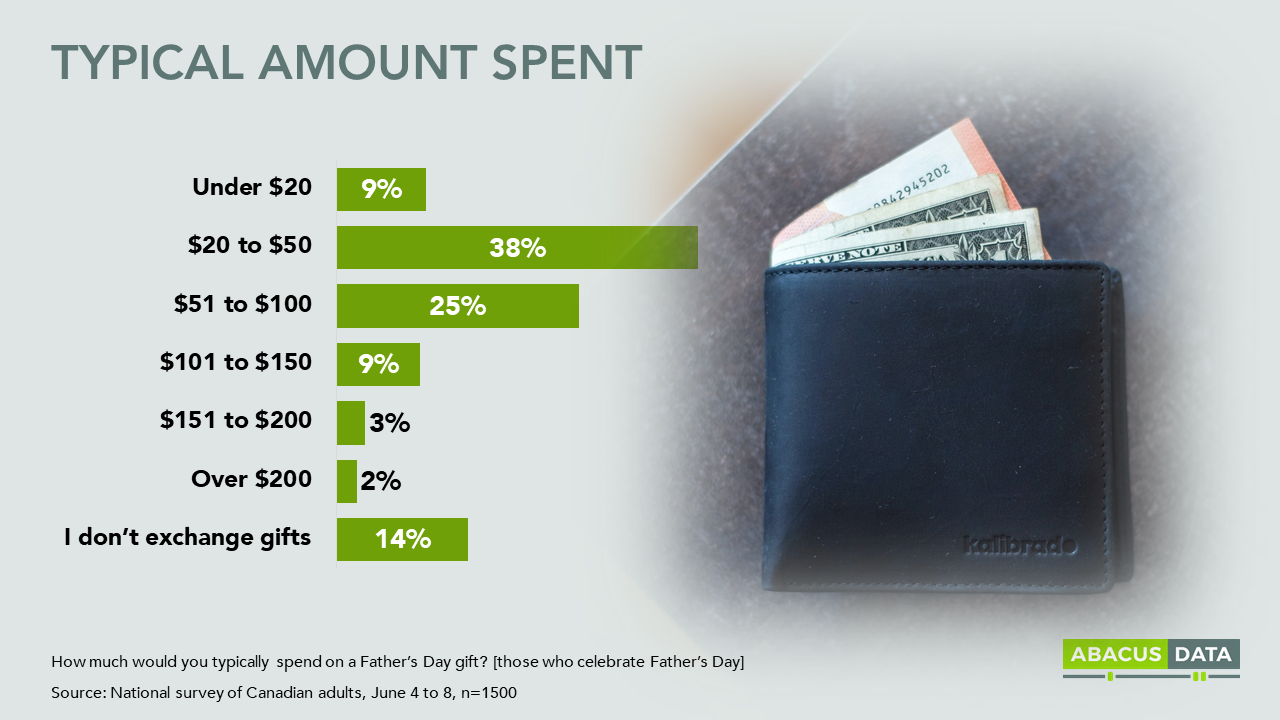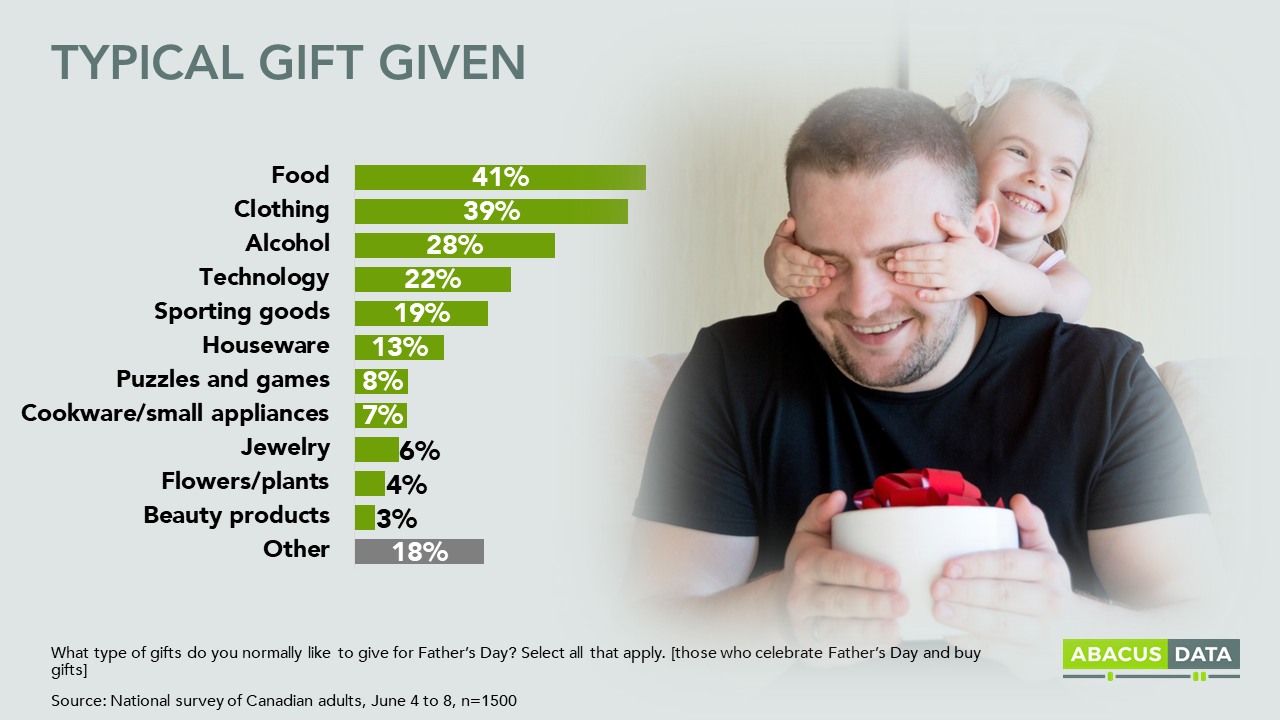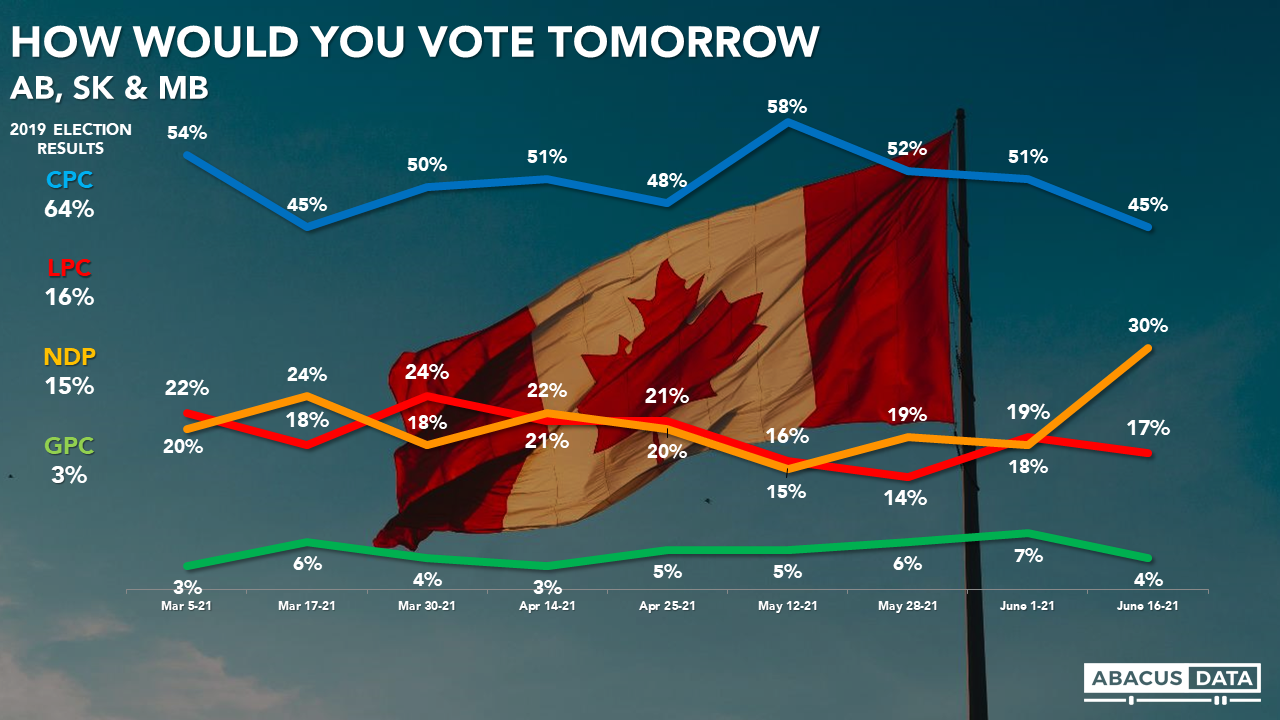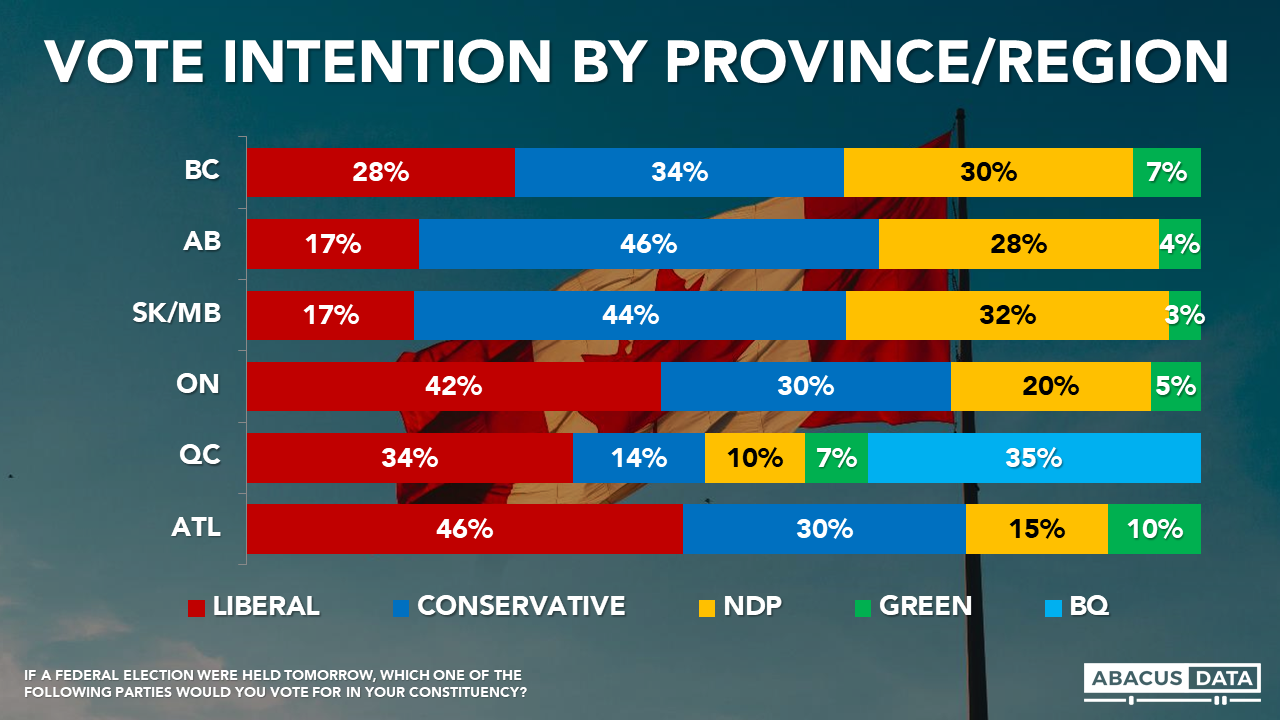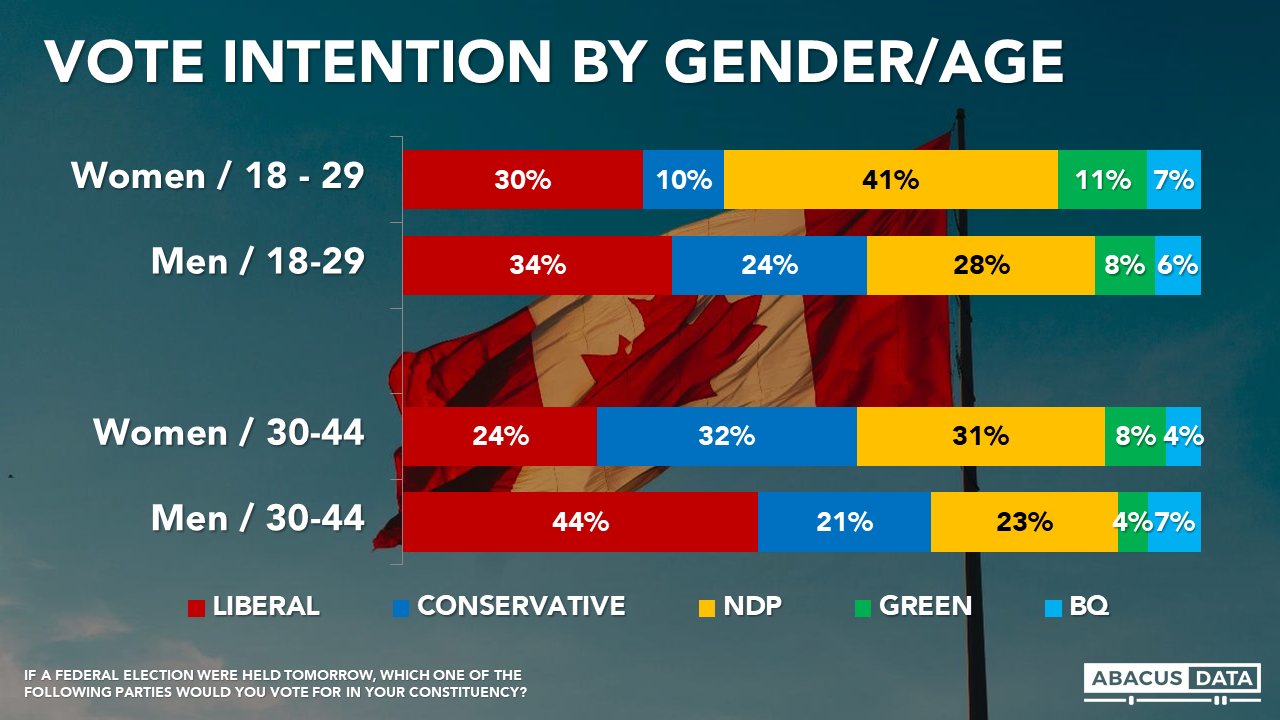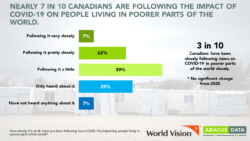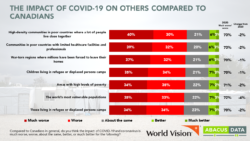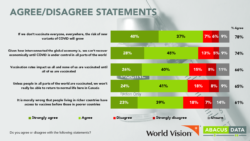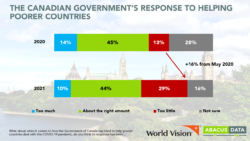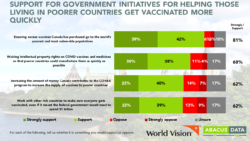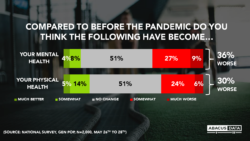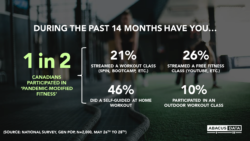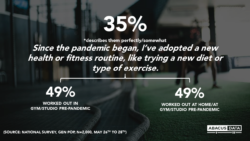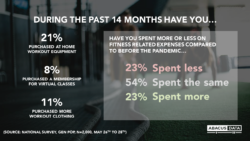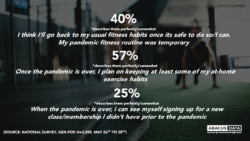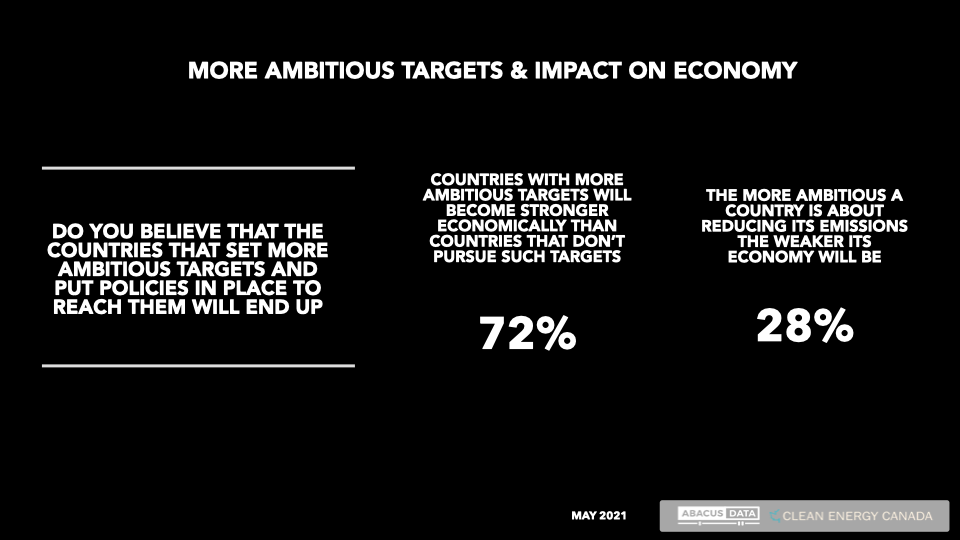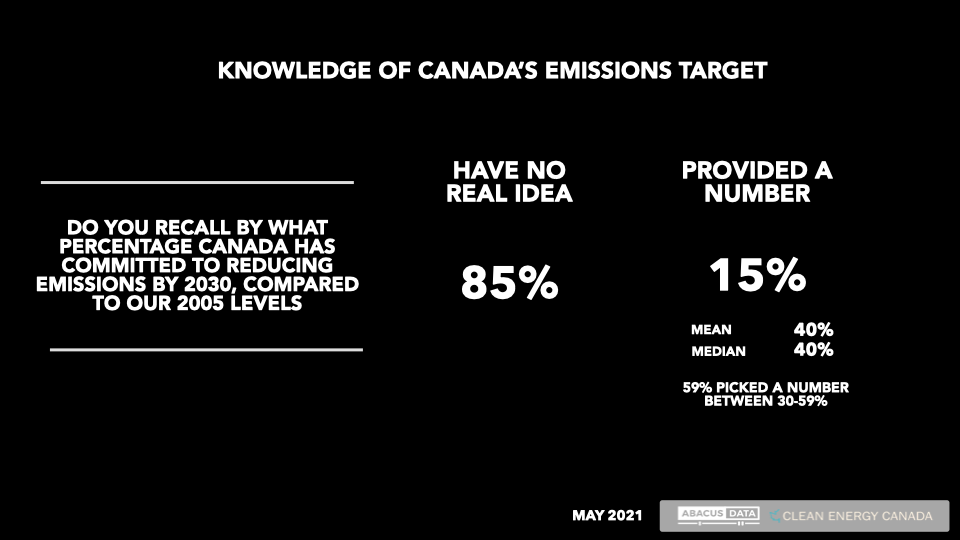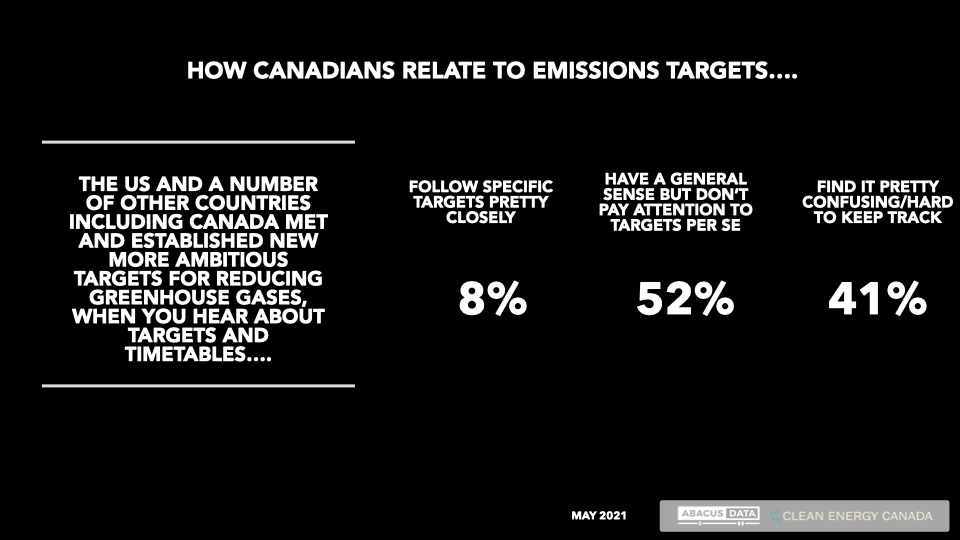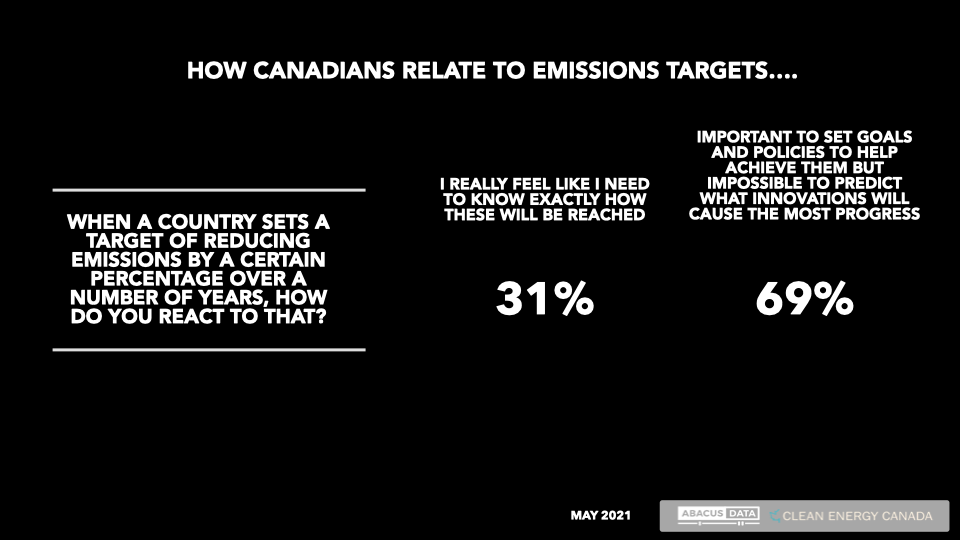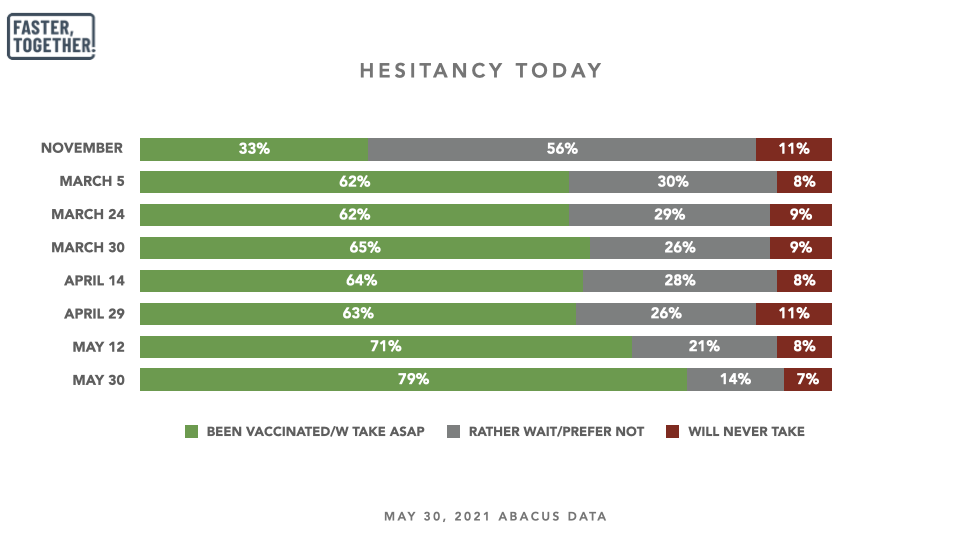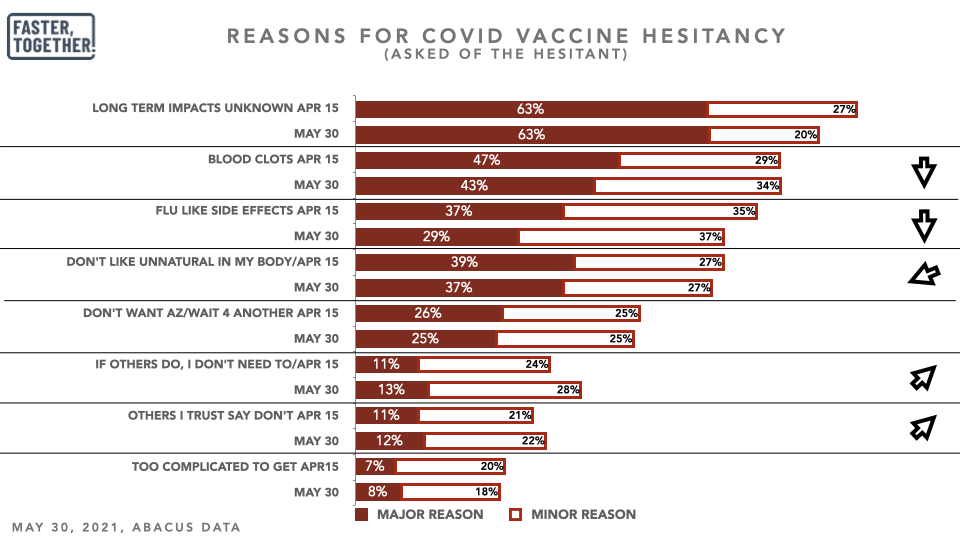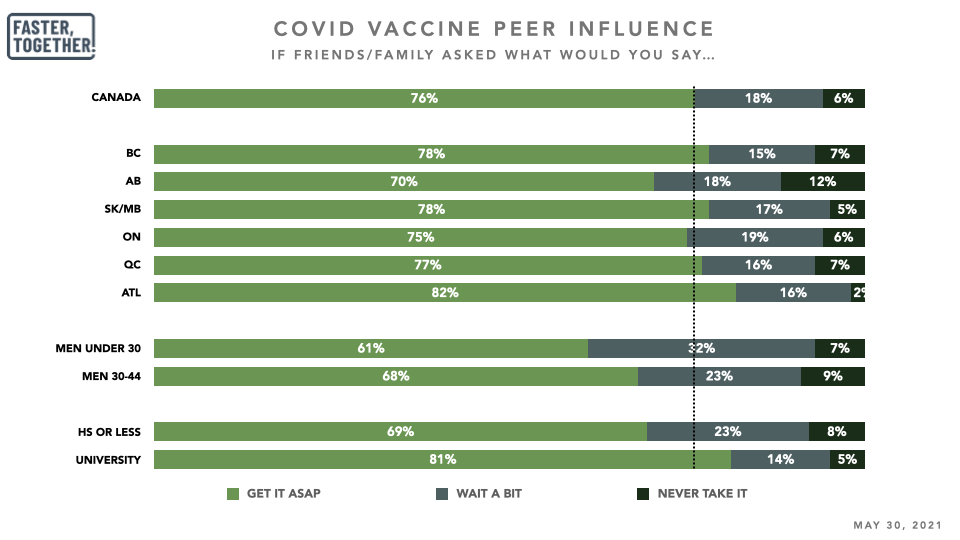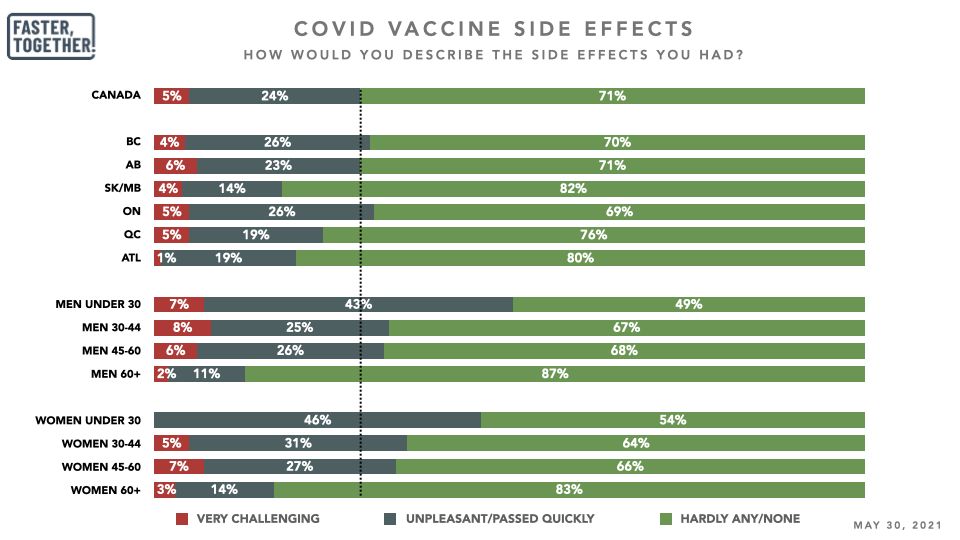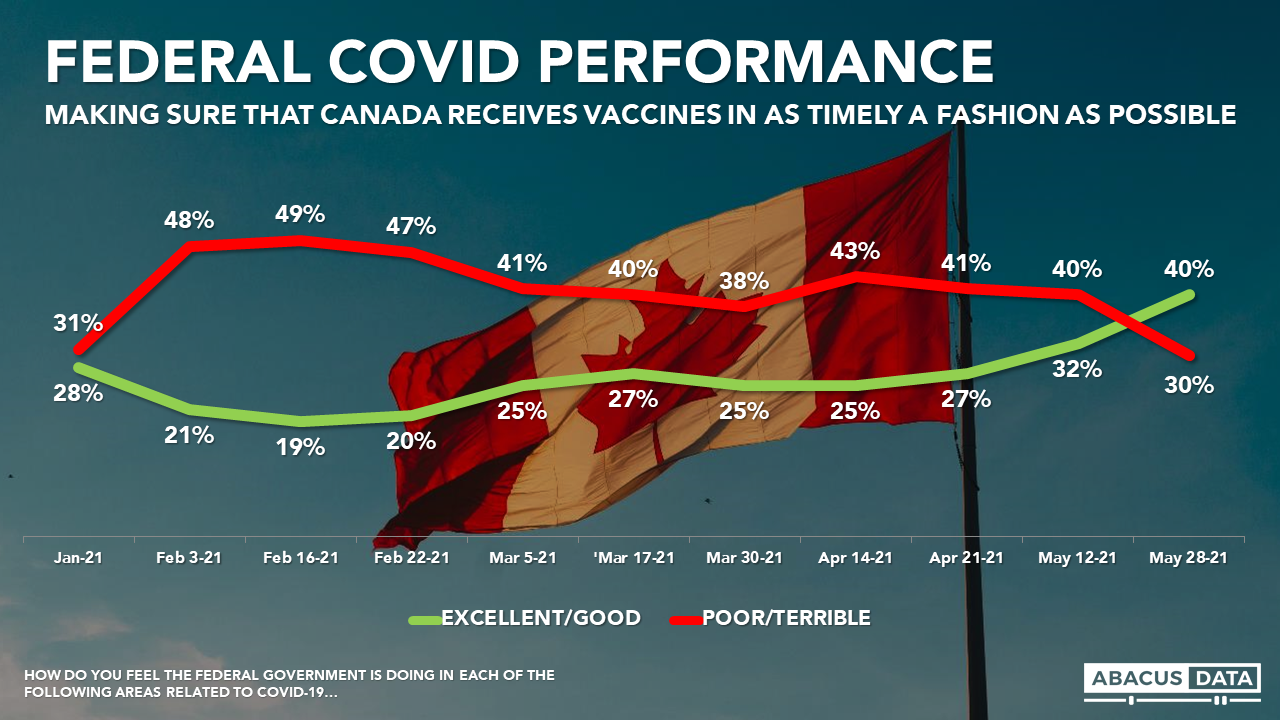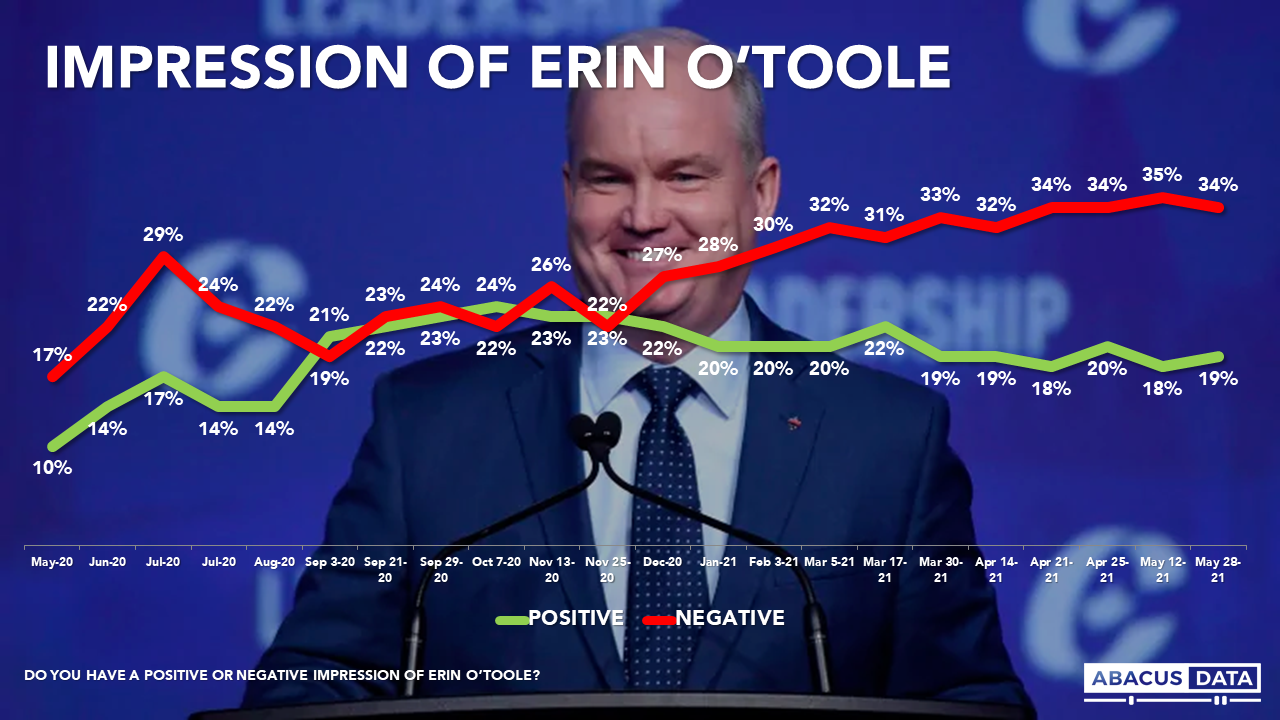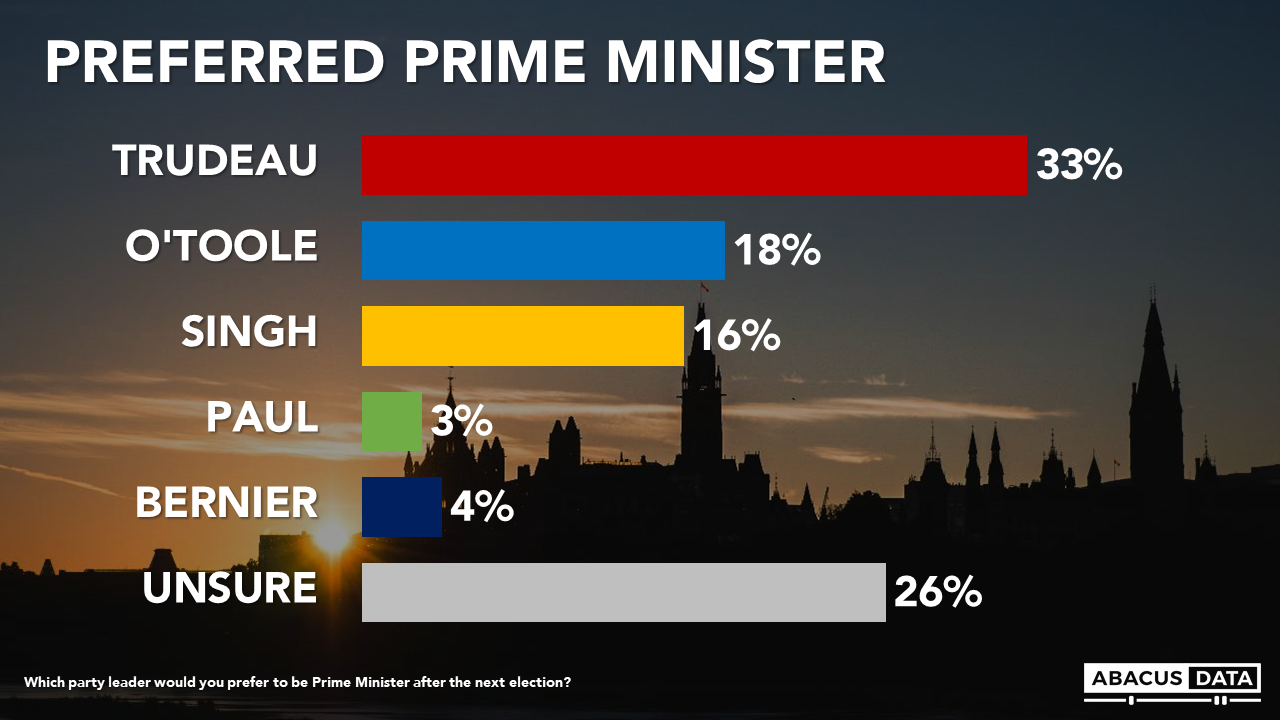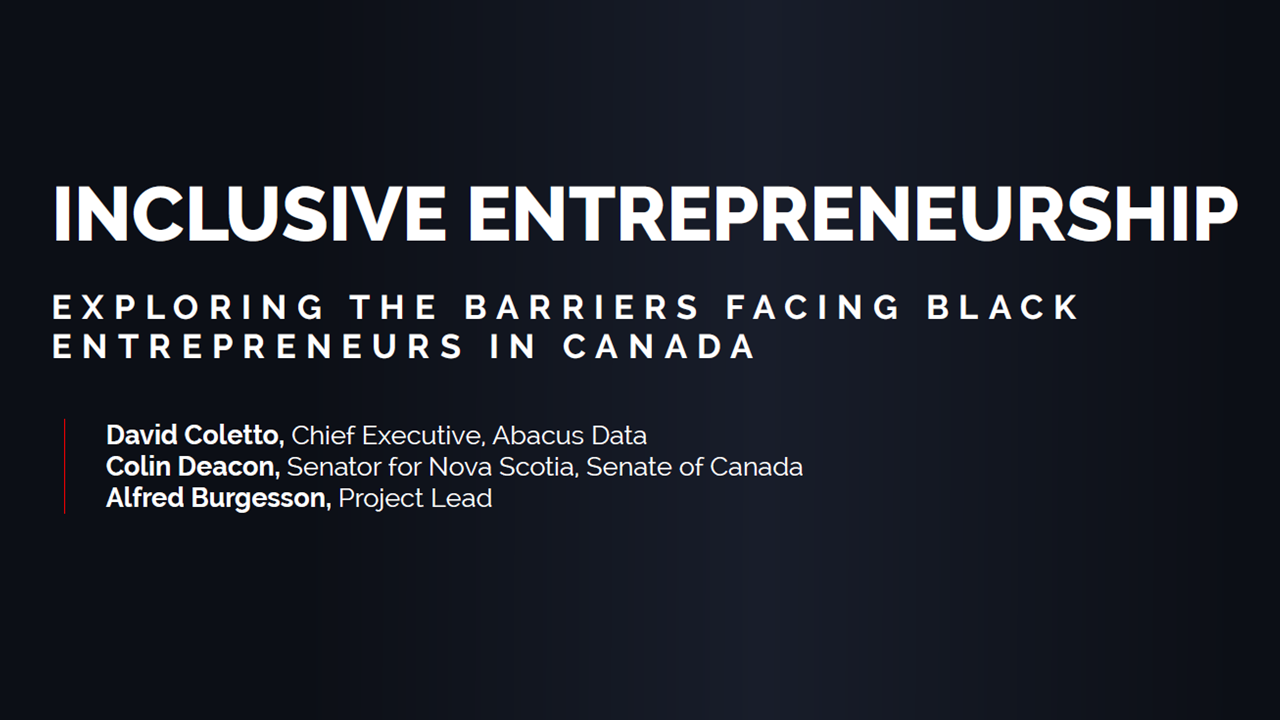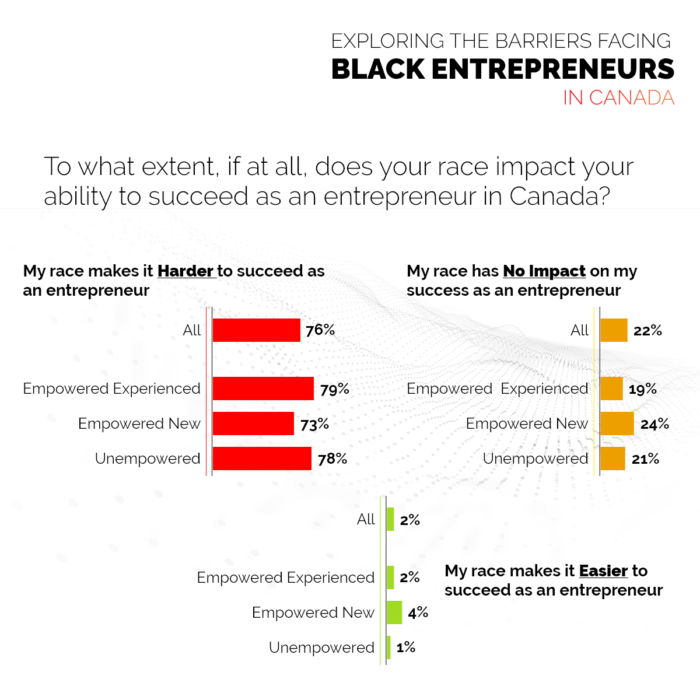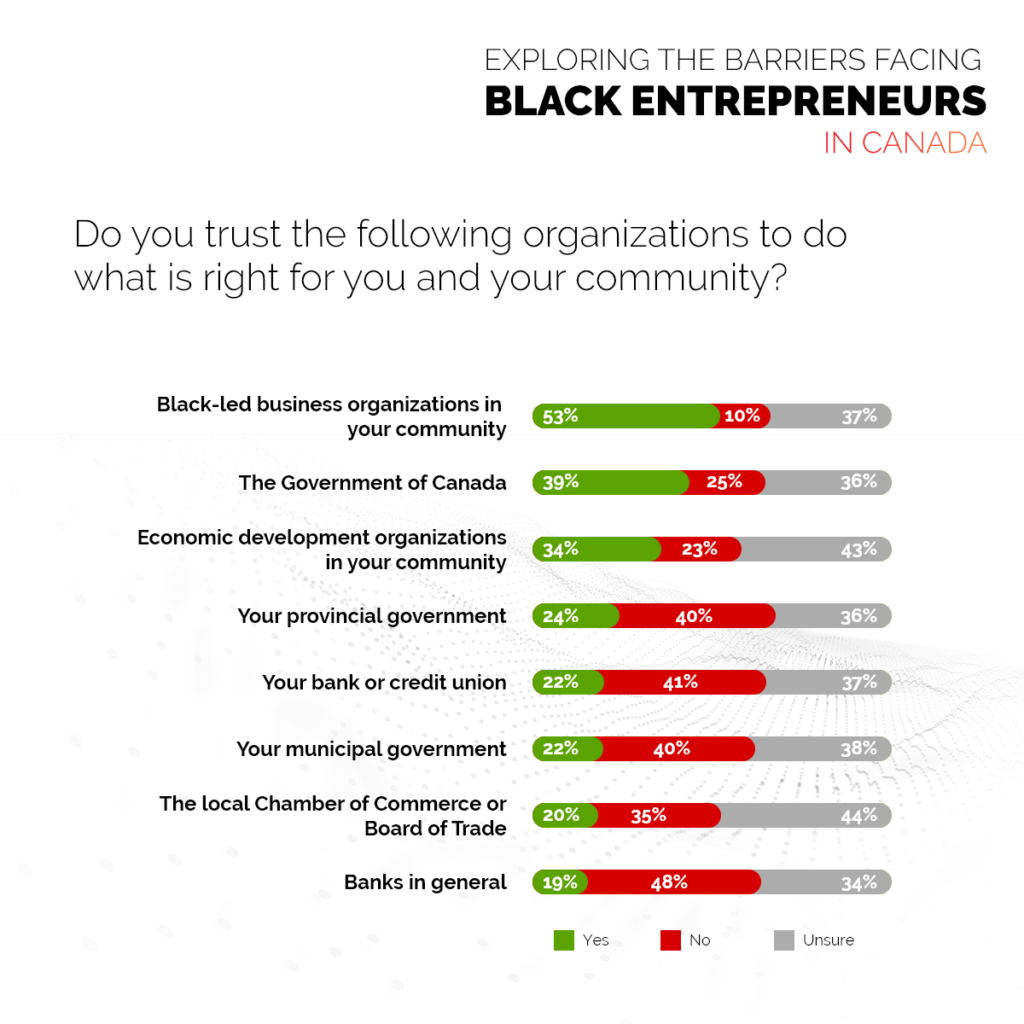Almost all plan to get a second shot, but a quarter doubt necessity
Abacus Data is proud to be supporting the research and polling for the Faster Together Task Group
The latest Abacus Data research conducted as a contribution to the Faster Together coalition reveals that the number of vaccine-hesitant Canadians has continued to decline, and now numbers 13%, with another 6% indicating they will never take a Covid19 vaccine.
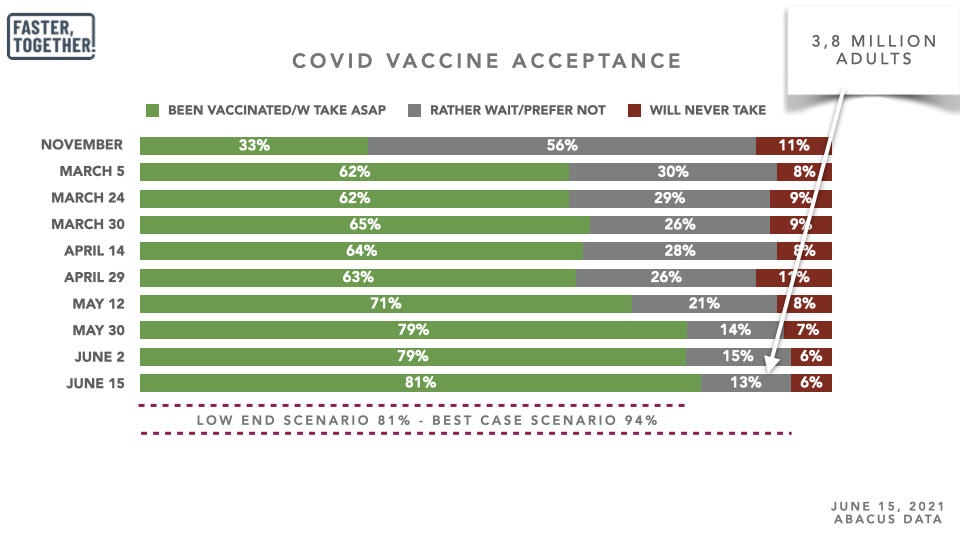
Among those who have already had a first shot of the vaccine, 98% say they have either had their second shot already or intend to take it as soon as possible. Just 2% say they might not bother with the second shot.
While these numbers suggest Canada can expect continued forward momentum in vaccine acceptance, one other question highlights the need to continue to provide education and encouragement about the second shot and its role in health protection from this virus.
Although 74% believe the second shot is “essential” to provide protection from Covid, 15% say it’s a good idea to get the second shot, but not essential, and 11% say they believe the 1st dose provides sufficient protection from their standpoint. Young people in particular seem less convinced about the need for the second shot.
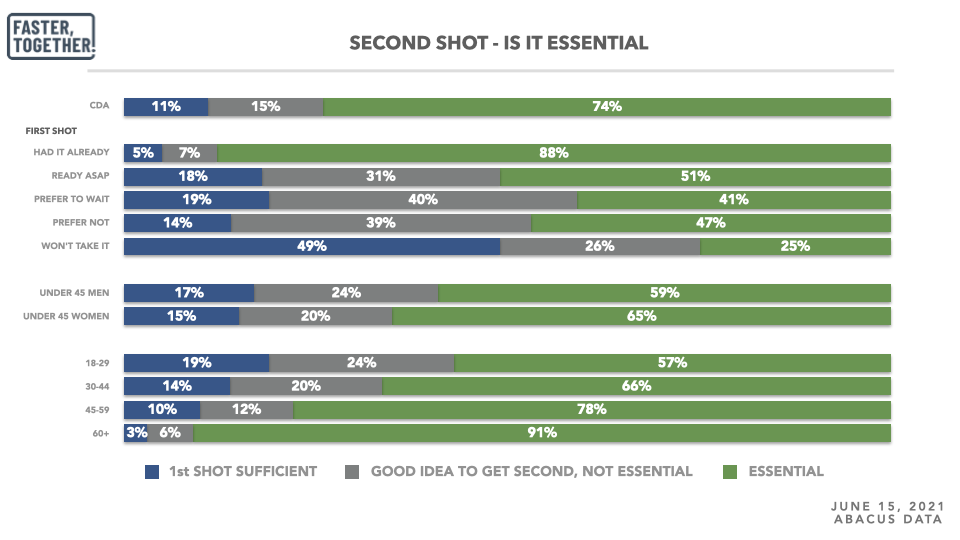
Together these numbers indicate that as many as a quarter of Canadian adults may need continued encouragement and information to make the decision to get the second shot.
[pdf-embedder url=”https://abacusdata.ca/wp-content/uploads/2021/06/Faster-Together-Release-June-21.pdf” title=”Faster Together Release June 21″]
THE FASTER TOGETHER COALITION
More than 240 organizations (labour unions, individuals, industry associations, airports, universities, and businesses large and small) have formed to encourage Canadians to be vaccinated against Covid19. Co-chaired by Hassan Yussuff, Past President of the Canadian Labour Congress and Bruce Anderson, Chairman of Abacus Data and a partner in spark*advocacy. Under the banner “Faster, Together” with opinion research contributed by Abacus Data and creative services by Spark Advocacy the group offers more than 400 pieces of creative material that any organization is free to use to reach audiences they have access to.
Faster Together digital ads can be downloaded from this site and used at no cost. A second site explains the work of the coalition and provides a link to provincial sites that can inform them about vaccine availability.
Those who want to join the coalition are welcome simply send an email to banderson@abacusdata.ca or hyussuff@clcctc.ca.
There is no cost to join and no limit on the size of the coalition.
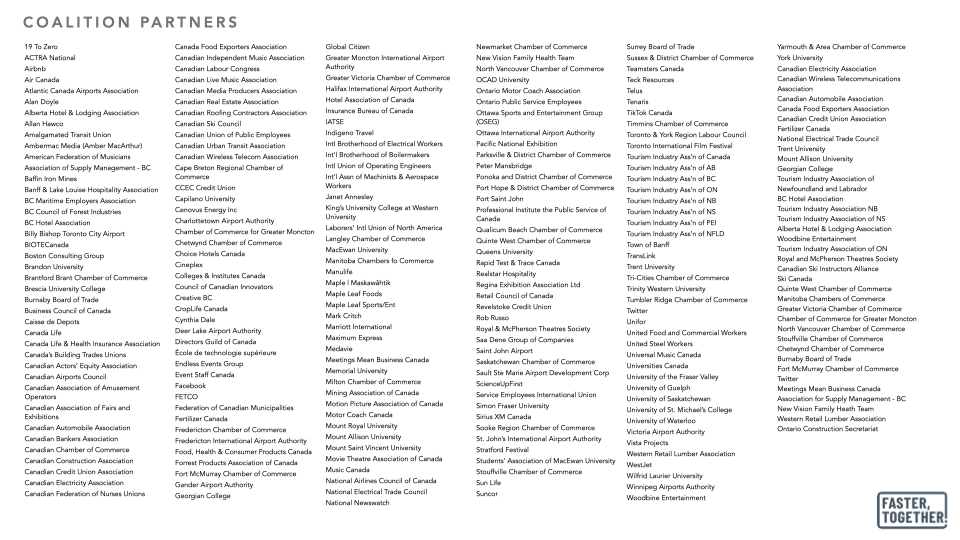
CONTACT
Bruce Anderson, Co-Chair
Abacus Data / spark*advocacy
banderson@abacusdata.ca
613.882.0929
Hassan Yussuff, Co-Chair
Canadian Labour Congress
hyussuff@clcctc.ca
613.851.7881
METHODOLOGY
The survey was conducted with 1,500 Canadian adults from June 11 to 15, 2021.
A random sample of panelists were invited to complete the survey from a set of partner panels based on the Lucid exchange platform. These partners are typically double opt-in survey panels, blended to manage out potential skews in the data from a single source.
The margin of error for a comparable probability-based random sample of the same size is +/- 2.6%, 19 times out of 20. The data were weighted according to census data to ensure that the sample matched Canada’s population according to age, gender, educational attainment, and region. Totals may not add up to 100 due to rounding.
ABOUT ABACUS DATA
We are the only research and strategy firm that helps organizations respond to the disruptive risks and opportunities in a world where demographics and technology are changing more quickly than ever.
Find out more about what we are doing to help clients respond to the COVID-19 pandemic.
We are an innovative, fast-growing public opinion and marketing research consultancy. We use the latest technology, sound science, and deep experience to generate top-flight research-based advice to our clients. We offer global research capacity with a strong focus on customer service, attention to detail and exceptional value.
We were one of the most accurate pollsters conducting research during the 2019 Canadian Election.
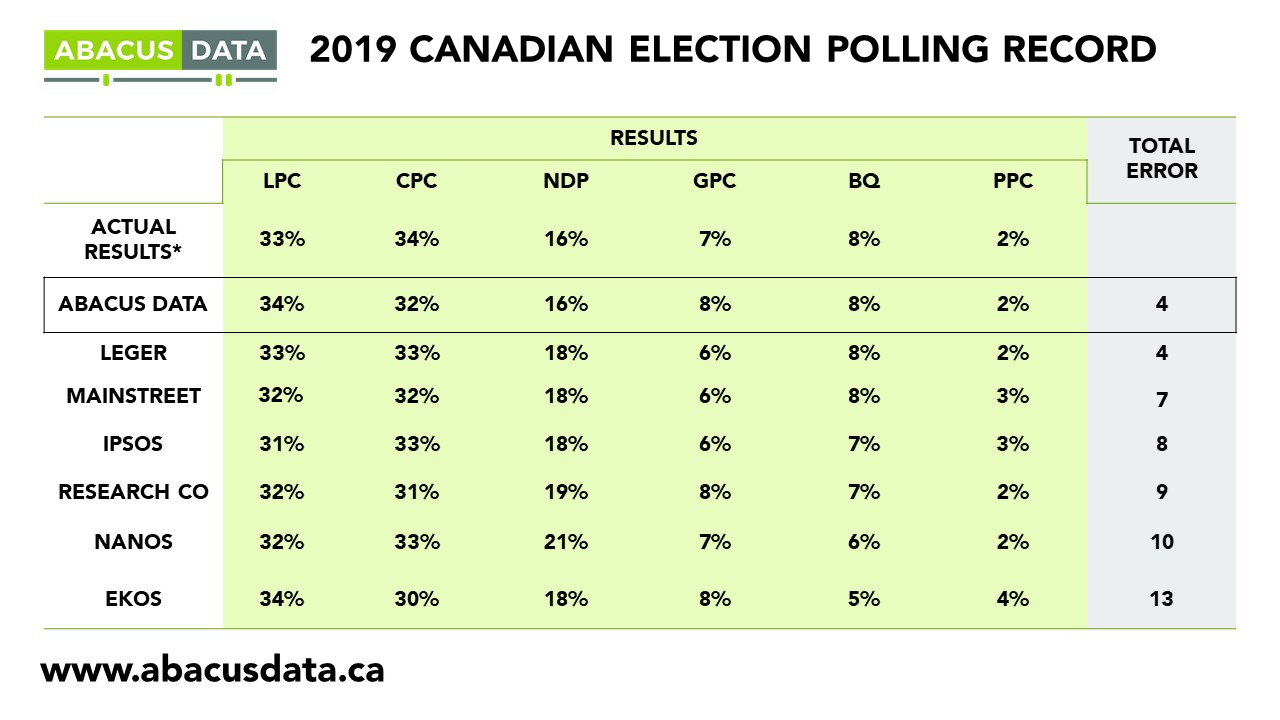
Contact us with any questions.
Find out more about how we can help your organization by downloading our corporate profile and service offering.

